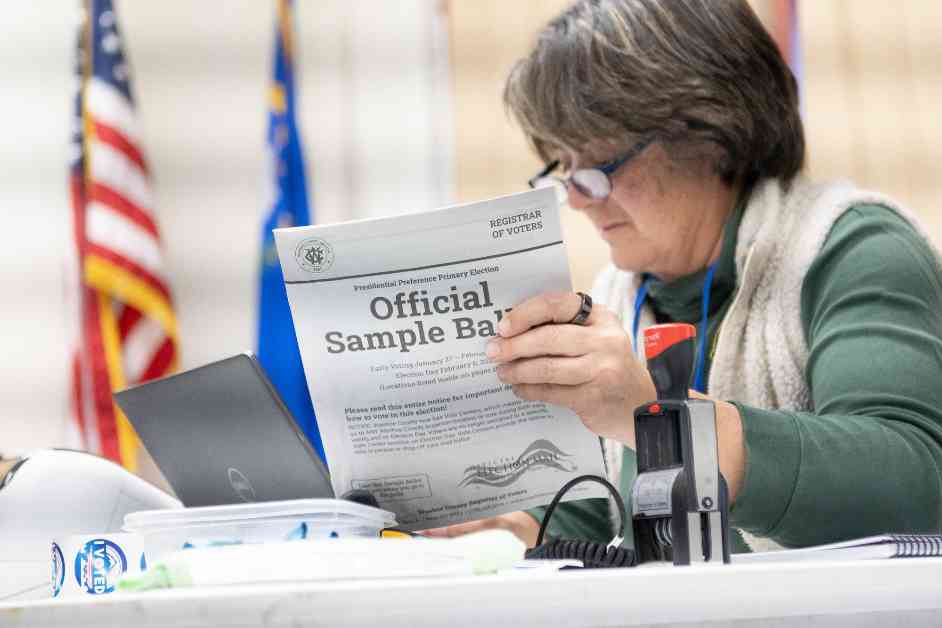Support Question 3: Empowering Voters for a Stronger Democracy
The words of William Magear “Boss” Tweed, the notorious party leader of the Tammany Hall political machine in the mid-1800s, still hold relevance today: “I don’t care who does the electing, so long as I get to do the nominating.” Tweed understood that real power lay in controlling the nomination process rather than the voting process. This sentiment resonates in Nevada, where the closed primary system has enabled similar dynamics, favoring party-selected candidates and stifling the voices of nonpartisan and minor party voters.
The closed primary system in Nevada allows parties to handpick candidates, giving them endorsements and financial advantages that often result in the parties’ chosen few winning primary elections. This not only skews election outcomes but also disenfranchises nearly 1 million Nevadans registered as nonpartisan or with a minor party. These voters, comprising almost 40% of the electorate, are locked out of taxpayer-funded primaries, violating the principles of representative democracy by limiting their participation in the nominating process.
Moreover, the declining voter turnout in closed primaries, especially among younger voters, highlights the urgency for a more inclusive and representative electoral system. With fewer citizens casting their votes in closed primaries, candidates can advance to the general election with the support of only a small fraction of registered voters, undermining the democratic principle of majority rule.
Question 3, a citizen-initiated ballot measure passed by Nevada voters in 2022, offers a solution to these issues by abolishing closed primaries and introducing ranked-choice voting (RCV). In an open primary under Question 3, all voters, regardless of party affiliation, can select their preferred candidates from any party for each office. The top five vote getters then advance to the general election, ensuring a broader pool of candidates and a more inclusive electoral process.
While some may be unfamiliar with the mechanics of ranked-choice voting, its simplicity and effectiveness have been demonstrated in various contexts, from consumer choices to electoral systems. Just as consumers rank their preferences when making purchases, voters can rank their choices on the ballot, allowing for a more nuanced and representative selection of candidates. The adoption of RCV in 60 American cities and in states like Alaska and Maine has shown positive results, with 85% of Alaskan voters finding the process simple and effective.
Despite the potential benefits of open primaries and RCV, there will inevitably be opposition from vested interests and those resistant to change. The entrenched power structures of both major parties may resist reforms that challenge their dominance in the political landscape. However, the bipartisan support for RCV, from figures like Gov. Tim Walz (D-MN) to Sen. Mitt Romney (R-UT), underscores the broad appeal of electoral reforms that promote fairness and inclusivity.
In Nevada, Question 3 represents a significant step towards a more representative democracy, giving voters the opportunity to shape the nomination process and ensure that candidates reflect the will of the people rather than the dictates of party machinery. By empowering citizens to participate in the selection of candidates with broad appeal, Question 3 and RCV aim to reduce the influence of extreme candidacies and promote a more balanced and inclusive political landscape.
As we reflect on Nevada’s history of pioneering social and political reforms, from legalizing divorce to electing the first female majority Legislature, it is clear that the state has a tradition of embracing innovation and progressive change. Voting in favor of Question 3 is a continuation of this legacy, allowing Nevadans to reclaim their role as the true architects of their democracy and shape the future of their electoral system.
In conclusion, Question 3 offers a path towards a more democratic and inclusive electoral process in Nevada, enabling voters to have a greater say in the nomination of candidates and promoting a diverse and representative political landscape. By embracing open primaries and ranked-choice voting, Nevadans can empower themselves to break free from the constraints of party politics and ensure that their voices are heard in shaping the future of their state. Let us seize this opportunity to return power to the people and strengthen our democracy for generations to come.

